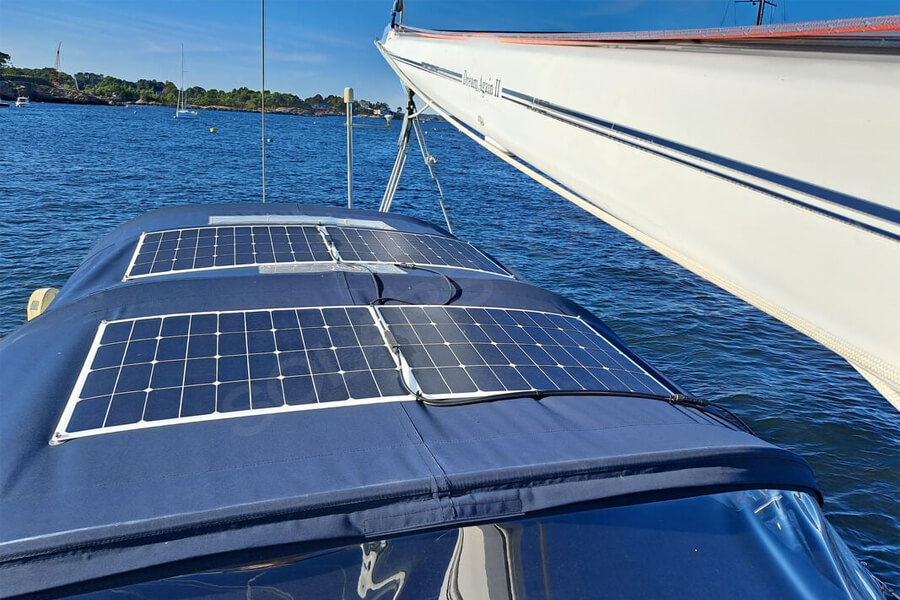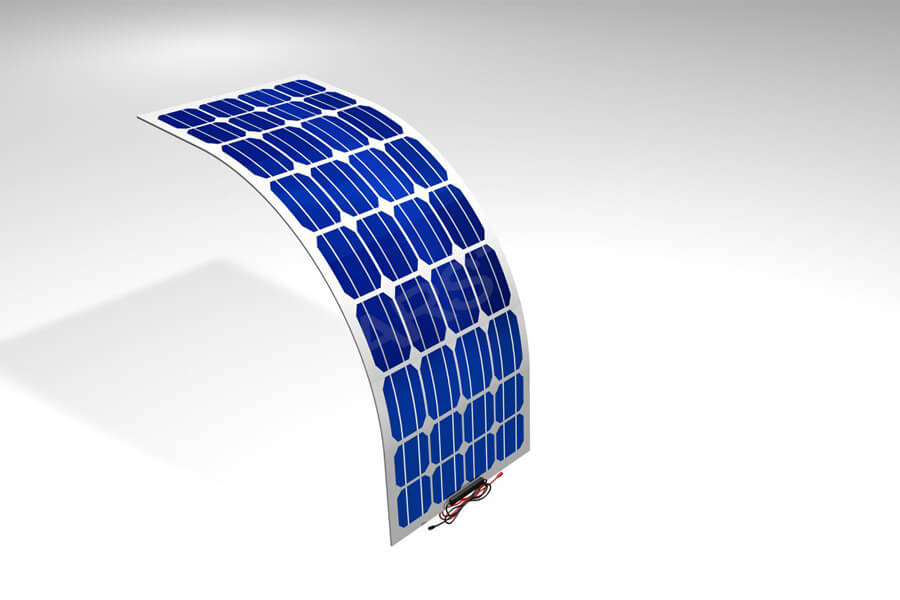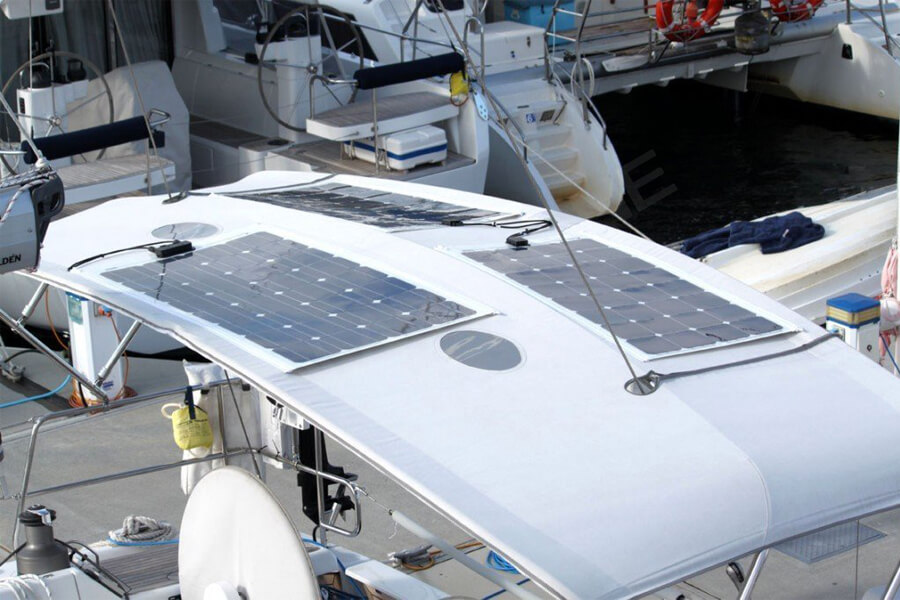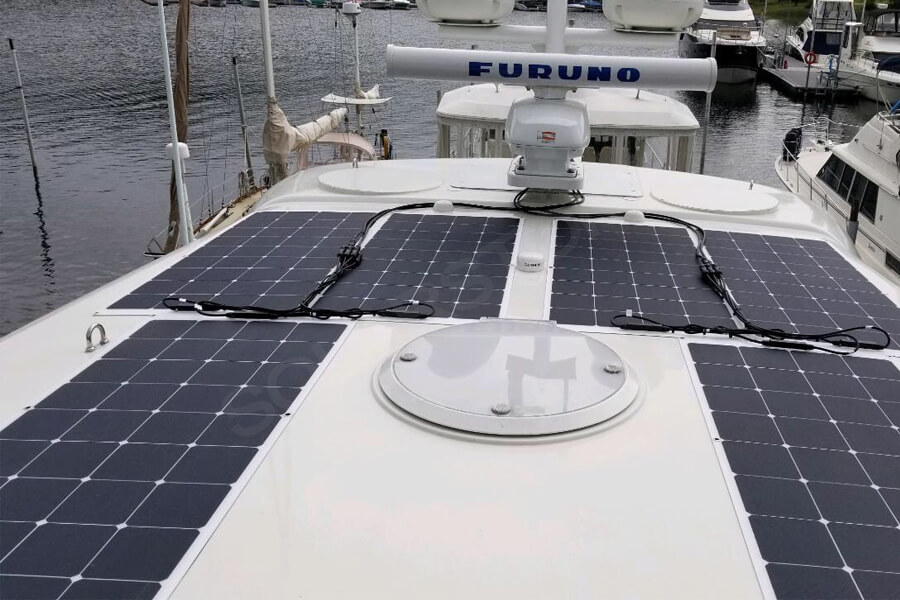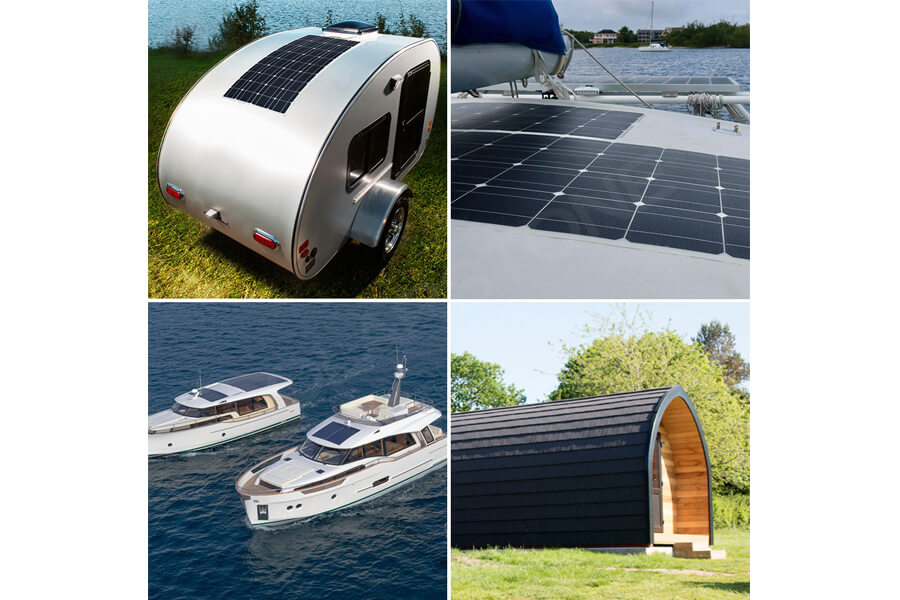Flexible solar cell is a kind of thin film solar cell with advanced technology, excellent performance, low cost and wide applications. Its characteristic is that amorphous silicon coated with resin serves as the main photoelectric element layer and is laid flat on a flexible material substrate.
This new type of solar cell can be bent into curved or irregular shapes at will. It can be applied to solar backpacks, solar convertibles, solar flashlights, solar cars, solar sailboats, and even solar airplanes.
One important application area of flexible solar energy is BIPV (Integrated Photovoltaic Building), which can be integrated into windows or roofs, exterior walls or interior walls to fully utilize the abundant solar energy and convert it into electricity. This current can be stored in a battery for generating power or as an energy source.
Operational principle
Compared to traditional (flat) solar panels, flexible solar panel technology makes solar panels lightweight, portable, and bendable, allowing you to carry them with you on the go. In fact, their portability is their main selling point. The price of 100W flexible solar panels on the market is less than $100.
Despite significant surface differences, the working mode of flexible solar panels is very similar to traditional (flat) solar panels because they are based on the same photovoltaic technology – the ability of materials to generate solar energy from absorbing direct sunlight. (Light energy converted into electrical energy)
In fact, all forms of solar panels are strategically manufactured in deep blue/black tones to absorb the maximum amount of sunlight (mainly during the day, with almost zero conversion rates at night), which will result in higher power generation.
Although traditional solar panels used to power residential and commercial complexes are larger in size and power (usually multiple 340W power panels), making them bulky, flexible solar panels are designed to meet low wattage power requirements and typically have capacities ranging from 50W to 300W. In addition, this can be stored in the battery for future use.
For this reason, they are a particularly useful mobile power source that will come in handy when you are on the go. Therefore, they can be comfortably used for RVs, rowing equipment, marine equipment (including large yachts), camping trips, long-distance travel, and even as your main source of power for daily use away from the power grid.
Application prospect
Traditional solar panels are limited by weight, thickness, portability, and bending resistance, making them unsuitable for civilian use and can only be used in mountainous areas and buildings.
The emergence of flexible chips will change the current situation of this industry, making it possible for solar energy to enter millions of households and become a portable item.
Truly flexible ultra-thin solar panels are the future direction of solar energy development. Traditional silicon crystal glass laminated or drip glued panels will inevitably be phased out.
The same size and weight are only 1/10 of traditional solar panels, and the thickness is only 1/5 of the original. This will greatly promote the application of solar energy, making it possible for solar energy to be made into any shape and attached to any object surface. This is a new technological revolution with broad market prospects.
Advantages and disadvantages
Advantages:
- As an environmentally friendly energy storage facility (requiring energy storage batteries)
- Lightweight and portable, resistant to bending, with good flexibility, able to withstand certain bending, and can be installed on curved surfaces
- Good heat dissipation, weather resistance, corrosion resistance, and long-lasting durability
- The photoelectric conversion efficiency is high, reaching over 21%, making it the first choice for installing and modifying RVs or self driving vehicles.
Disadvantages:
- The general size is not large, therefore power generation and storage are limited. Even with an efficiency of up to 22%, you can only get around 300W of flexible solar panels.
- Not as durable as solar panels. For example, even high-quality solar panels only offer a one-year product warranty, while traditional solar panels can easily have a lifespan of 20-25 years.


